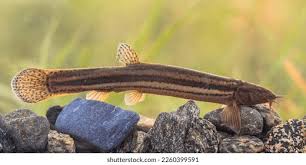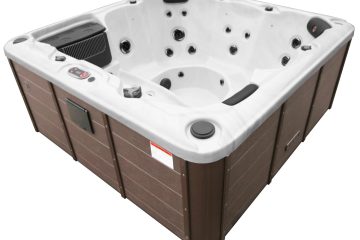Understanding Pond Loach: Care, Habitat, and Impact

Introduction
Pond loaches, known scientifically as Misgurnus anguillicaudatus, are freshwater fish prevalent in East Asia and increasingly popular in garden ponds and aquariums. These fish play a significant role in maintaining pond ecosystems by controlling insect populations and contributing to aquatic health. Given their unique behavioral traits and adaptive nature, understanding their habitat and care requirements is essential for hobbyists and environmentalists alike.
Physical Characteristics and Behavior
Pond loaches can reach lengths of up to 25 cm and are characterized by their elongated, slim bodies and smooth skin, often exhibiting shades of brown or olive-green with lighter underbellies. One of the most striking features of pond loaches is their ability to breathe air; they have a specialized swim bladder that functions similarly to lungs, allowing them to live in oxygen-depleted waters. They are also known for their bottom-dwelling behavior and playful demeanor, often engaging in digging and foraging activities.
Habitat Requirements
To thrive, pond loaches need a suitable habitat that mimics their natural environment. They require a pond with shallow areas, plenty of vegetation, and a soft substrate for burrowing. Ideal water temperatures range from 15°C to 25°C, and the water should be clean and well-aerated to promote healthy living conditions. Regular water changes and filtering are crucial to avoid the buildup of harmful toxins.
Care Tips for Pond Keepers
When keeping pond loaches, it’s essential to provide a balanced diet that includes high-quality flakes, frozen or live food, and vegetable matter. They are known for being social fish, making it advisable to keep them in groups to prevent loneliness and stress. Additionally, a pond should be equipped with shelters, such as rocks or driftwood, to provide hiding spots and reduce aggression among fish. Monitoring water quality regularly can help prevent diseases and ensure a healthy environment for pond loaches.
Conclusion
Pond loaches are more than just beautiful additions to home gardens; they are vital contributors to pond ecosystems. By understanding their care needs and natural behaviors, pond owners can enjoy the presence of these fish while promoting ecological balance in aquatic environments. As interest in sustainable gardening and water conservation grows, pond loaches are likely to become increasingly favored among aquatic enthusiasts and environmental advocates alike.







